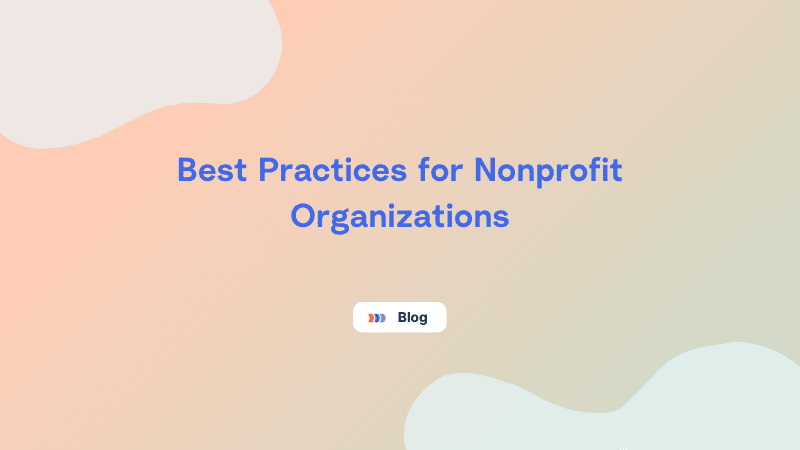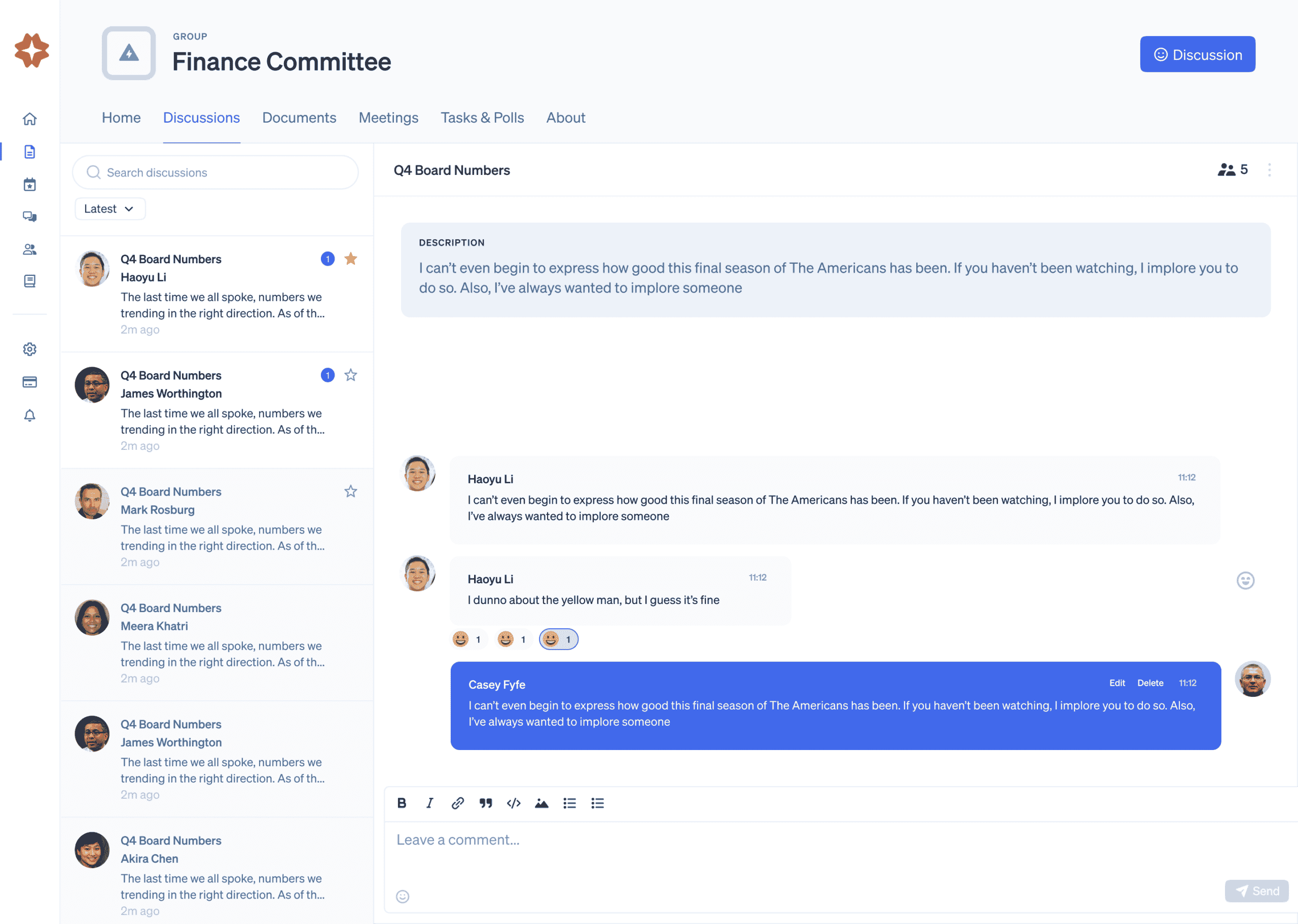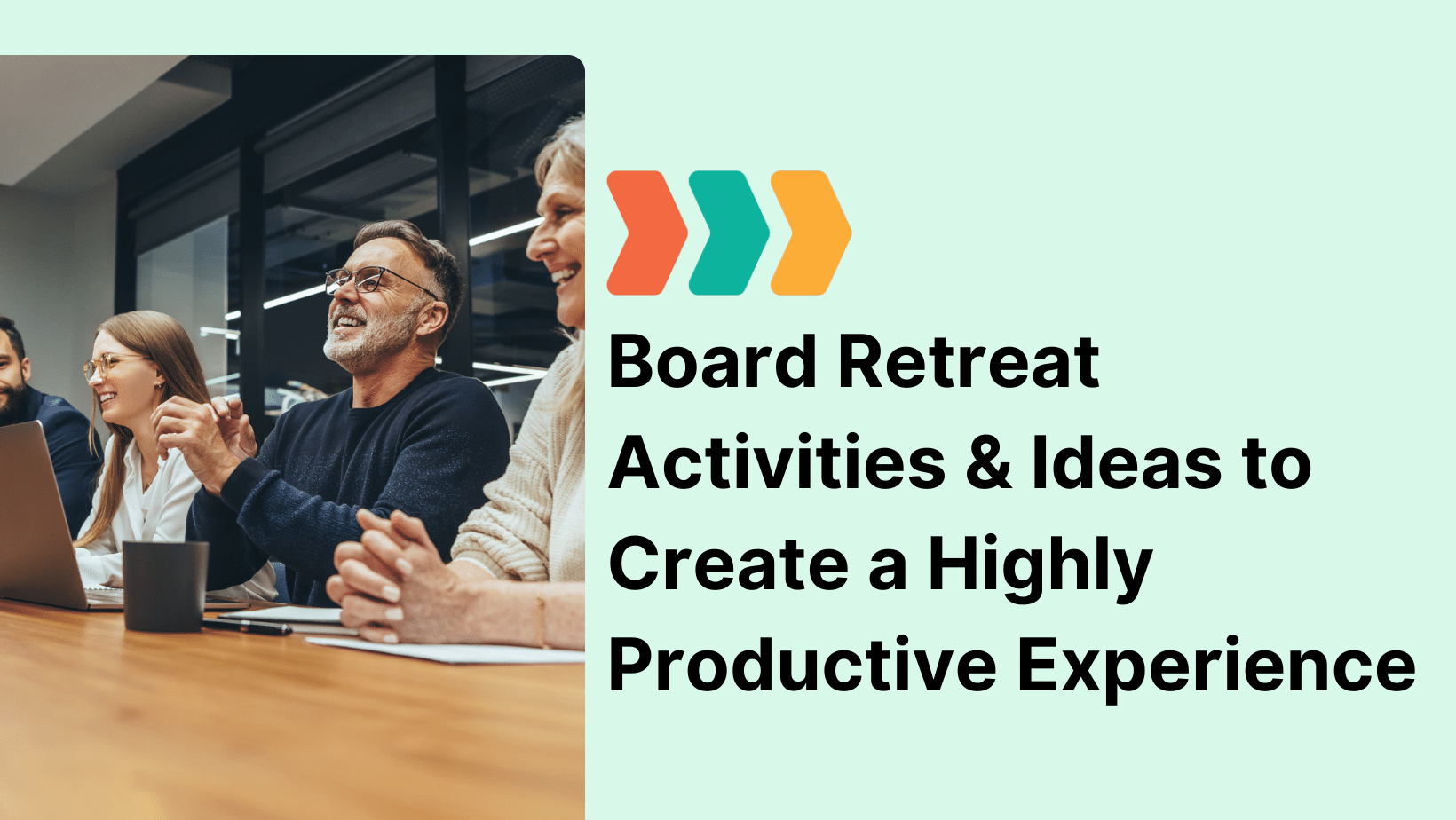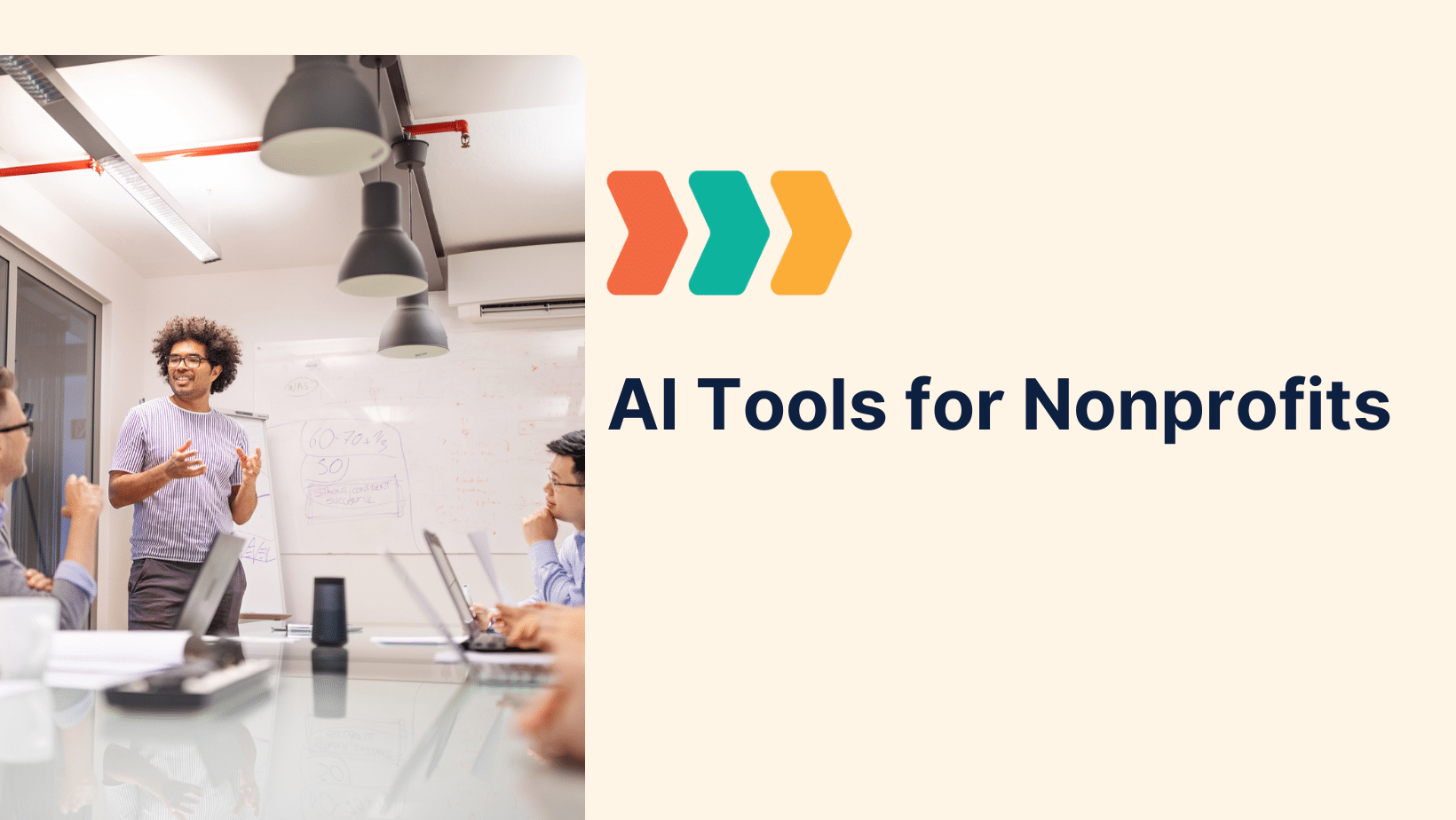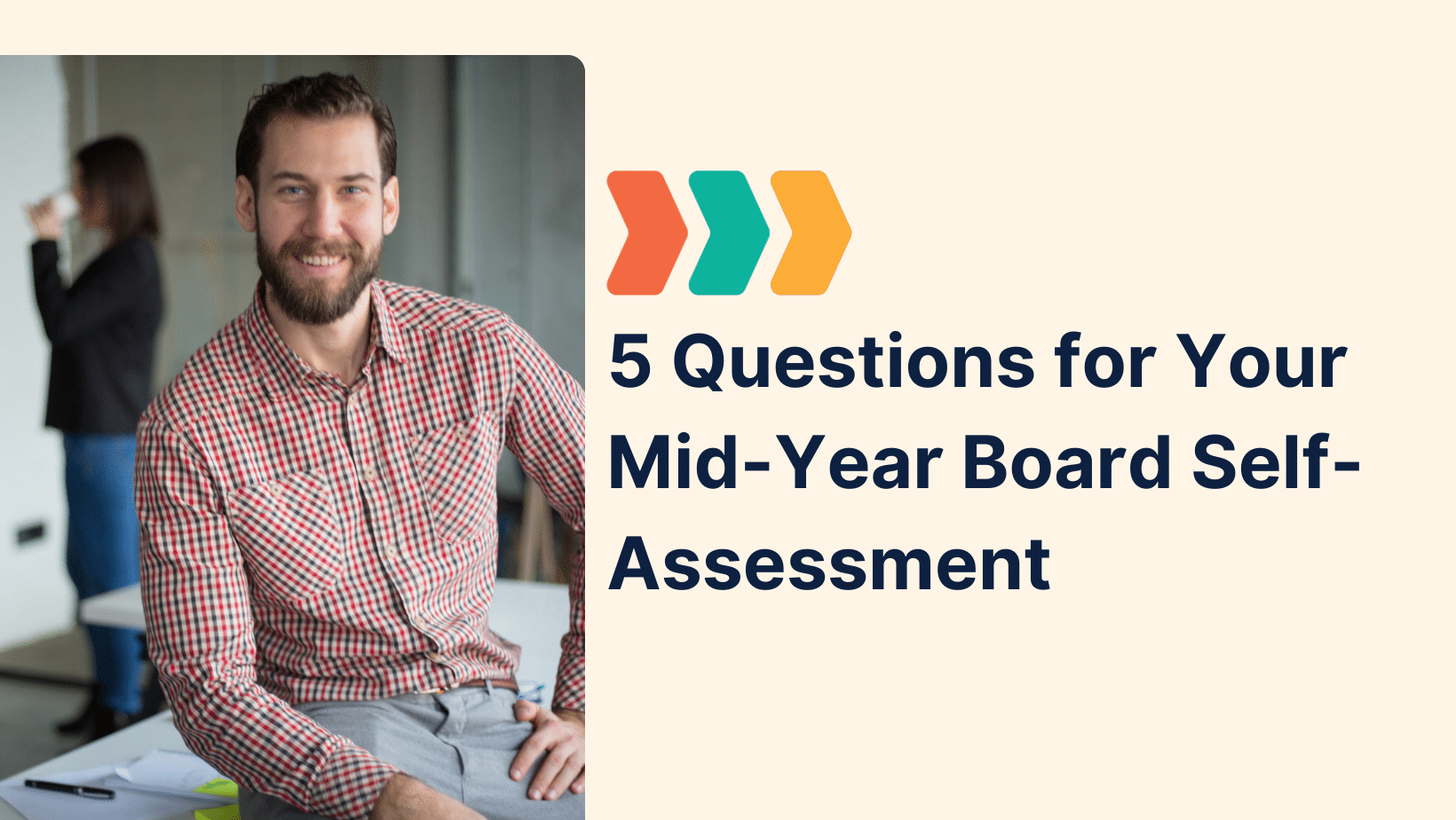Nonprofit boards play an essential role in the success and achievements of an organization. If you are part of a nonprofit board committee, you might have a general idea of the roles and responsibilities that nonprofit organizations and boards hold. While ensuring that your board is the best version of itself is vital to your organization’s sustainability, a board is only as strong as its members. If you are unaware of the various roles of nonprofit boards, then figuring out how to improve your organization feels like a lost cause.
Strengthening the efficiency of your committee or initiating a new board committee begins with a thorough understanding of how to start a nonprofit organization. You must determine how to start a nonprofit organization with no money. While you do not need a specific amount of money to initiate nonprofit organizations, you may incur some standard costs and fees during the early stages of building your committee. If you are concerned about costs for your board, you should look into state-specific resources and guidelines to ensure that you can cover any required costs.
Nonprofit organizations have board members carrying specific roles and responsibilities to keep an organization running smoothly. Nonprofits must fulfill various board member roles to ensure that each meeting is efficient, productive, and timely. Once you know the different types of nonprofits to start, you can move on to understand the core responsibilities of every board. To guarantee that your board members are efficient and successful, you must adhere to some of the following responsibilities for nonprofit boards. For instance, you may consider essential roles, including:
- Establishing an organization’s vision and purpose
- Managing an organization’s public image
- Help when onboarding new members
- Maintaining legal compliance and organization integrity
- Overseeing financial management and strategies
- Crafting roadmaps and frameworks to set goals for an organization
- Determining how to handle various resources
- Addressing any concerns from board members and executives
- Help when resolving conflict
- Providing updates on the organizational process
Identifying Strengths, Gaps, Opportunities, And Weaknesses Within A Nonprofit
Fostering a progressive environment for board meetings requires you to be capable of identifying strengths, gaps, opportunities, and weaknesses within a nonprofit organization. While you may fill your board committee with talented and dedicated members, it is essential to recognize and accept areas where change is necessary. Nonprofit board problems often arise when members fail to look at their activities from a critical perspective while still celebrating their strengths and achievements. Your nonprofit board should work to improve itself constantly, meaning that you must implement effective committee leadership and accountability practices.
Many nonprofit board problems originate from poor or nonexistent assessments of the organization and its needs. If you feel that your board committee is struggling, then it is time to assess your needs and determine your board’s strengths, weaknesses, and goals. Identifying these elements allows you to improve selection and hire candidates with appropriate skills and qualifications.
A nonprofit opportunity can arise at any time, meaning that you and your committee members should always look for upcoming changes that will benefit your community.
Assessing the health and well-being of your board committee goes beyond simple search terms like “list of nonprofit organizations near me.” Each board member must partake in making your committee stronger and more trustworthy. To improve your committee, you must understand the unique roles of each member of your board. For example, the board’s chairperson is responsible for presiding at board meetings, creating a clear plan, assigning committee chairs, holding members accountable, and setting progressive goals and agendas.
Though the chairperson plays an important role, other positions on a board committee are equally responsible for their tasks. Board secretaries prioritize notifying all committee members of meetings and proactively recording meetings. Furthermore, secretaries prepare the official meeting minutes and take note of the board’s motions, discussions, votes, and decisions. Generally speaking, all board members have the following duties: the duty of care, loyalty, and obedience.
Board Management Software
Nonprofit boards commonly run into issues with organization and communication. Even older, established committees run into problems with their board agendas from time to time. While an issue now and then might not seem like too big of a deal, problems might get out of hand if you do not take steps to improve communication with your board members. To improve your board’s communication, board management software like Boardable is a vital asset.
Using board software for nonprofits is one of the best ways to improve your board management and boost team morale. Nonprofit board committees receive numerous benefits from software like Boardable, which allows teams to start practicing the best strategies for creating an effective and productive board environment. Board management software allows board members to connect via a digital message board. Given the hybrid nature of the modern workplace, board committees must seek the best online meeting platforms specifically made to manage boards and encourage cohesive communication.
Holding productive meetings is essential to keeping your organization healthy and thriving. Boardable has some of the best features offered by board management platforms. For instance, Boardable simplifies meeting management by automating scheduling for all board meetings. Boardable also allows teams to create productive agendas and easily track meeting minutes. Boardable’s management features allow for effective and organized meetings that foster an honest conversation between members.
Furthermore, Boardable is crucial for file sharing between committee members, making it possible to access and organize essential documents for each meeting quickly. Board members struggling to track their responsibilities during each meeting will benefit from Boardable’s task management features, which ensure that all members are up to date on individual responsibilities, tasks, and deadlines. Task management features allow members to hold each other accountable for their tasks and quickly identify issues if a member is not fulfilling their role.
Modern Governance
Modern governance is an essential element of every successful board committee. If you are new to board committees, then it is essential to understand why governance matters. Committee governance involves how a board implements its policies, procedures, and processes, and board committees are responsible for all modern governance practices and responsibilities. An effective governance strategy is one of the best practices for nonprofits looking to improve communication between members.
Nonprofit boards benefit from learning about effective governance strategies. Modern governance outlines the core responsibilities of nonprofit boards and follows general board management best practices to ensure the success of an organization. Modern board committee frameworks outline how a board of directors in corporate governance conducts business. Governance is crucial to keeping the board of directors transparent and trustworthy in their business practices. Generally speaking, the primary governance roles and responsibilities for nonprofit organizations are as follows:
- Ensuring strategic planning that is in line with an organization’s overall vision, mission statement, and purpose
- Identifying top candidates for board members, conducting interviews, and hiring the most qualified candidates
- Reviewing and approving budgets and project expenses according to an organization’s finances and economic activities
- Monitoring an organization’s resources to ensure sufficient assets to achieve a board’s stewardship mission
- Conducting a Strengths, Weaknesses, Opportunities, and Threats (SWAT) analysis
- Managing an organization’s assets
- Complying with laws and standards for nonprofit committees
- Improving programs and services provided by the organization
The board of directors in corporate governance strategies is essential to the overall success of an organization. Adhering to modern governance practices requires board members to establish committees for specific activities and purposes. The types of committees in an organization depend on one another to maintain strong, organized, productive board practices. The first type of committee in modern governance practices is an Ad Hoc Committee, which is typically temporary and made for particular issues. Another committee type is a constitutional committee, followed by advisory and joint committees.
Nonprofit Best Practices
Organizations benefit from implementing nonprofit best practices for board committees. Though there are numerous best practices for committees, manually managing all of your board’s resources makes it challenging to follow these practices. Therefore, organizations need software like Boardable to understand the best practices for their board and how to solve any issues the board currently faces. Boardable serves numerous purposes for nonprofit organizations, such as tracking committee meeting minutes and automating meeting schedules.
If you are starting a nonprofit organization, a checklist outlining the best nonprofit practices is a valuable place to begin; however, you will need advanced software to ensure that everything in your new organization runs smoothly. Boardable streamlines numerous processes for nonprofit boards and makes it easier to communicate with members while understanding individual tasks and responsibilities.
Along with software like Boardable, your nonprofit board must keep track of specific applications and forms, such as the IRS 501(c3) application, rules, and regulations. Another necessary form for nonprofit boards is form 990, which ensures that financial information about your nonprofit organization is public knowledge and that boards are not taking advantage of their tax-exempt status. While these forms only scratch the surface of what you should know about managing your board, they are still essential to your overall governance. Creating a charter for a committee is another way to ensure that your board members follow established responsibilities.
Because the various responsibilities of nonprofit boards can be overwhelming, organizations must implement software like Boardable to understand how to implement effective practices and foster an open and communicative environment with all board members. Boardable encourages committee members to engage in meetings and simplifies the process of scheduling and documenting meetings. Boardable is crucial to ensure accountability in all nonprofit board meetings and for boards looking to follow modern governance strategies.
